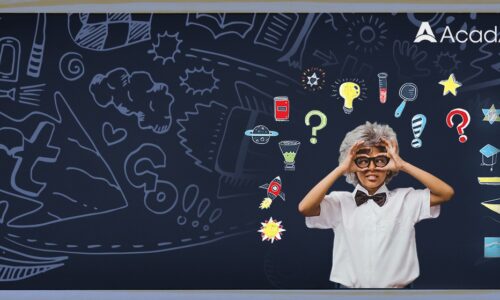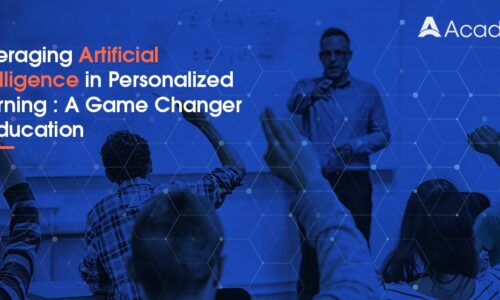- Acadally
- 0 Comments
- 3184 Views
In schools and on campuses across the countries, AI in education is gaining a lot of attention and challenging the old teaching methods. The CoSN’s report titled “Artificial Intelligence (AI) in K-12″ highlighted AI’s potential to influence every aspect of education and society. As the educational front continues to evolve, AI continues to play a crucial role in personalizing education, and supporting curriculum development. It continues to encourage experimentation that allows for new learning and teaching methods. The new forms and ways offered by AI in education are groundbreaking and protect against inaccurate content, bias, and plagiarism. This section outlines the use of AI in developing teaching styles.
Exploring the Strategies for Artificial Intelligence
While artificial intelligence is a new technology, it is already being implemented in many educational institutes. It offers many tools that help in transforming the educational landscape. Some of these tools are specially made for the education market. To mention a few benefits:
- Pedagogical Material: Pedagogical materials are an essential part of education and teaching. It guides correct lessons. It includes lesson plans, visual aids, interactive content and worksheets. With the integration of AI, teachers can access ready-made pedagogical materials, such as customized slides and lecture notes. These materials are framed as per the subjects and class. It aims to provide educators with efficient ways to teach their students.
- Teaching Methodologies: Artificial Intelligence offers a wide range of teaching methodologies to choose from. It empowers the teachers to choose from different options as per the needs of the classroom. Whether it’s personalized learning paths, or flipped classrooms, AI helps in adopting the right methodology. This allows for better engagement of students and helps in understanding the student’s behaviour. AI-powered teaching also suggests the necessary adjustments to teaching methods. The flexibility offered in AI-driven techniques provides educators with enough comfort and time to adapt.
- Better Assignment Creation: Creating assignments and checking them takes away half of a teacher’s day. AI-powered teaching is here to make both of these steps easy and quick. Teachers can create assignments in minutes, thanks to AI-driven platforms that provide access to a vast library. Grading also becomes easy. The automated grading system easily grades MCQs and essay-based assignments. AI can even analyze open-ended responses and provide valuable feedback.
- Improving Classroom Engagement: One of the biggest challenges that educators face in classrooms is the engagement of students. Artificial intelligence has solved this problem with the help of interactive and immersive learning experiences. AI platforms like AcadAlly take students to dynamic learning environments. They make interesting and fun lessons that force students to leave their comfort zone behind. It takes students on a virtual trip to historical sites and to different planets. This makes the life of teachers easy and also allows them to teach difficult topics in a fun way.
- Empowerment of Teachers: A worth-noting revolutionary benefit of AI is how it empowers teachers. AI enhances teacher’s effectiveness by offering personalized resources and insightful data. It allows them to focus on their strengths and keep their weaknesses at a minimum. It keeps educators updated with changing competition and difficulty. Teachers are able to focus more on delivering engaging lessons and interacting with students.
- Streamlining Class Organization: Artificial intelligence allows educators to make lesson plans and better curricula. These lesson plans allow educators to focus on necessary topics. It prevents time wastage. It helps in freeing up valuable time that educators can redirect toward meaningful instruction. Educators can use AI tools, such as AcadAlly, to create customizable lesson plans. It allows them to create plans that align with their standards and curriculum.
Conclusion
Educators are irreplaceable, and AI for education complements this existing human craft. One can enhance the work of educators but can never remove them. For understaffed schools, AI can be a helping hand and improve the quality of education technology. Responsible implementation of AI is in the hands of educators. Keeping ethical considerations in mind is crucially important. Platforms like AcadAlly, make the work of teachers easy. It Plans the entire year’s syllabus and provides activities to check prior knowledge. This makes the life of teachers easy and decreases the unnecessary workload. The future of education lies in a blend of AI and human educators, technology should be implemented with the help of educators.








